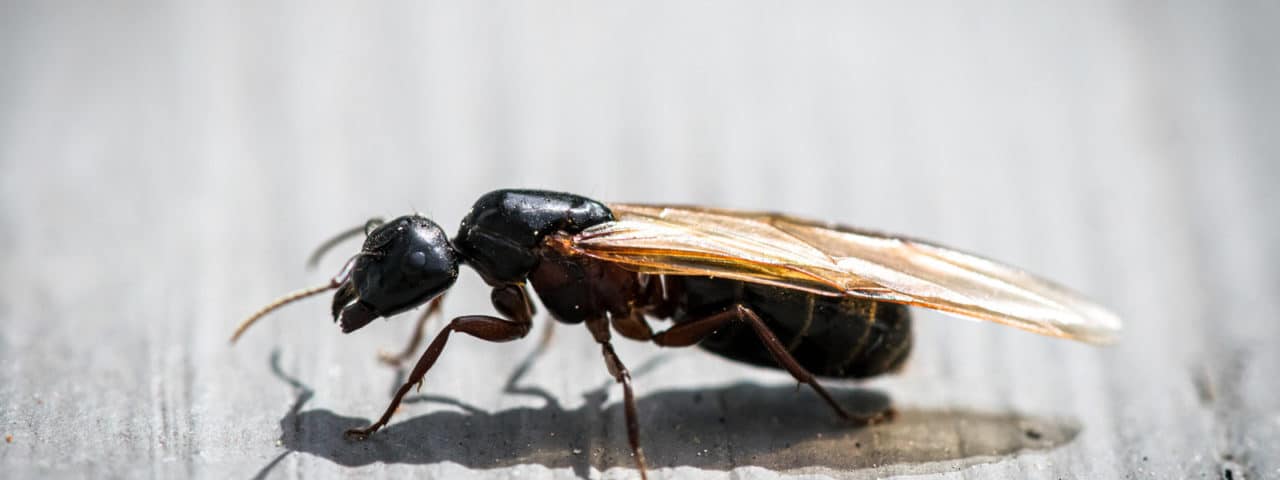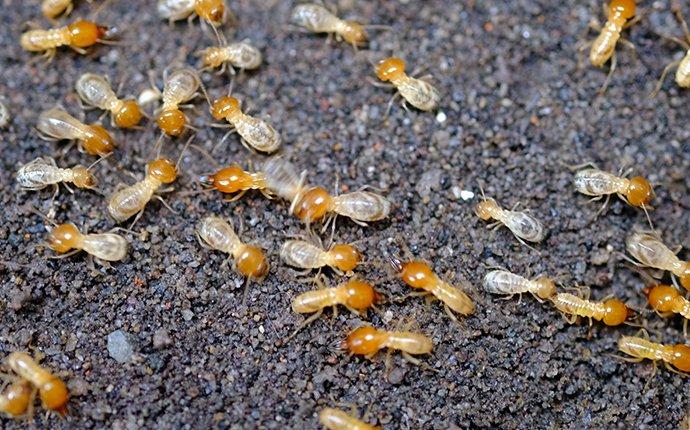Leading Ant Control Services: Dependable Solutions for Your Home or Service
Leading Ant Control Services: Dependable Solutions for Your Home or Service
Blog Article
Ecological Impact of Parasite Control: Harmonizing Efficiency With Sustainability
The ecological effect of insect control is an essential concern that needs a fragile balance between attaining performance in taking care of parasites and ensuring sustainability of our communities. As we make every effort to shield our plants, homes, and wellness from the risks posed by insects, the approaches we employ can inadvertently damage the atmosphere. From using unsafe chemicals that seep right into our dirt and water to the unexpected consequences on non-target species, the effects of traditional pest control methods are significant. Nevertheless, there are arising methods that supply expect an extra lasting method to pest management. These options not just purpose to resolve the instant insect troubles but likewise think about the long-lasting wellness of our earth.
Harmful Chemicals in Bug Control
The utilization of dangerous chemicals in insect control positions substantial ecological and health threats that necessitate cautious factor to consider and mitigation approaches. Insecticides, chemicals, and herbicides are commonly used to get rid of pests, but their prevalent application can bring about unintended consequences. These chemicals can infect dirt, water resources, and the air, influencing not only the targeted insects yet likewise valuable pests, wild animals, and humans.

To attend to these risks, integrated bug monitoring (IPM) techniques are being promoted as a more lasting alternative. IPM includes a combination of techniques such as organic control, environment manipulation, and the targeted usage of chemicals as a last option (ant control wesley chapel nc). By taking on an alternative approach to pest control, we can lessen the ecological and health effects connected with dangerous chemicals while properly taking care of pest populaces
Influence On Non-Target Variety
Taking into consideration the unintended consequences of insect control approaches, the influence on non-target species is a crucial facet that needs complete analysis. While pest control actions aim to target certain bugs, other organisms in the community may be accidentally affected. Non-target varieties, including valuable pests, birds, animals, and even plants, can endure direct or indirect harm from chemical applications or organic control methods.
Chemicals can have lethal or sub-lethal results on non-target types. Pesticides designed to combat a particular bug pest might harm pollinators like bees or natural predators such as ladybugs. Additionally, chemical deposits can build up in the environment, affecting non-target organisms gradually. Similarly, organic control representatives, if not species-specific, can present threats to unexpected targets, interrupting the ecological balance.
To reduce the influence on non-target types, incorporated bug management (IPM) strategies that highlight a holistic approach to pest control are advised. These methods prioritize using ecologically friendly practices, lessening harm to beneficial microorganisms while effectively managing pest populaces. Performing complete danger evaluations and monitoring the end results of pest control efforts are essential action in guarding non-target types and promoting total environment health and wellness.
Soil and Water Contamination
Unintentional ecological effects of insect control techniques expand past affecting non-target varieties, with significant ramifications for dirt and water contamination - termite control services. Pesticides, herbicides, and chemical plant foods made use of in pest control can leach right into the dirt and infect groundwater, posturing a risk to both water and earthbound ecosystems.
Water contamination is another critical concern associated with pest control practices. To mitigate dirt and water contamination from bug control tasks, incorporated insect management techniques that prioritize sustainability and minimize chemical inputs are crucial.
Air Air Pollution From Pesticide Use
Direct exposure to airborne chemicals throughout farming applications postures a substantial problem for air pollution control measures. They can volatilize right into the air and form unpredictable organic substances (VOCs) and various other airborne toxins when pesticides are sprayed onto plants - termite control services. These chemicals can add to the formation of ground-level ozone, a significant element of smog that can have destructive impacts on human health, plant productivity, and total air top quality. Furthermore, chemical drift, where pesticides are lugged by the wind to unintentional locations, can result in the contamination of neighboring environments and water bodies.

Strategies for Sustainable Insect Control
In the world of farming practices, executing lasting bug control approaches is critical for preserving environmental equilibrium and protecting crop yields. Lasting pest control highlights the usage of eco-friendly methods to manage pest populations successfully while minimizing harm to non-target organisms ant control kernersville nc and communities. Integrated Insect Administration (IPM) is a commonly adopted technique that incorporates organic, social, physical, and chemical control techniques to accomplish long-term pest management options.
Crop turning and diversification are also reliable techniques to disrupt pest life cycles and produce less desirable conditions for parasites to flourish. Inevitably, by integrating these sustainable pest control methods, farmers can achieve an equilibrium between pest administration efficiency and ecological stewardship.
Verdict
To conclude, the ecological impact of pest control methods need to be carefully thought about to stabilize effectiveness with sustainability. Unsafe chemicals used in parasite control can cause dirt and water contamination, air contamination, and harm non-target types - ant control. It is important to apply lasting parasite control techniques to decrease these negative effects on the setting and advertise a much healthier community for future generations
By embracing an all natural approach to pest control, we can reduce the ecological and health and wellness effects linked with dangerous chemicals while properly taking care of pest populaces.

To minimize the air pollution created by chemical use, it is crucial to adopt incorporated pest administration approaches that prioritize the usage of non-chemical insect control approaches, such as crop rotation, all-natural predators, and immune plant ranges. Lasting insect control emphasizes the usage of environmentally friendly approaches to manage bug populaces efficiently while minimizing harm to non-target microorganisms and communities. Integrated Parasite Management (IPM) is a commonly taken on approach that integrates biological, social, physical, and chemical control techniques to attain long-term insect administration remedies.
Report this page